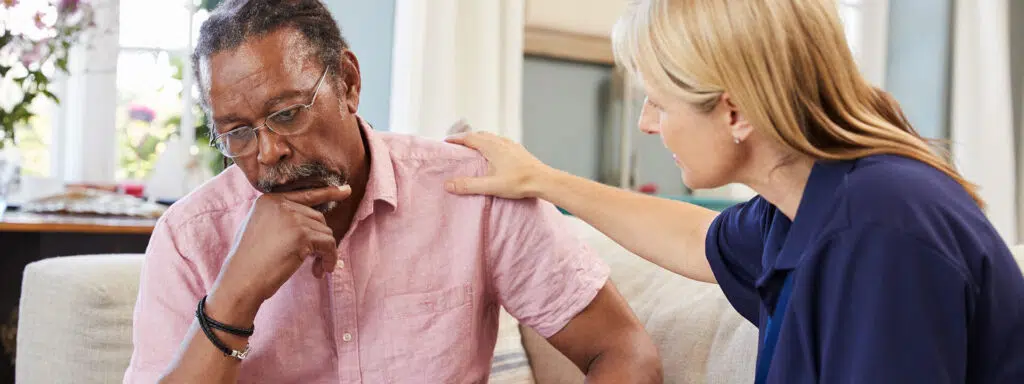Read the latest and greatest from our team
of incredible specialists.

Beach House Recovery Center » Blog » Your Rights As a Loved One of an Addict
As someone with an addict in your family, you feel pain. You feel helpless as you stand back and watch your loved one go through drastic shifts in mood and behavior, and you’re of putting on a happy face and maintaining order as you watch them slip away. Well guess what? You don’t have to do it anymore. As a loved one of an addict, you have the right to peace and happiness, and you have the right to get your life back on track. Here’s a more detailed look at your rights:

It’s a frequently used cliché: On an airplane, you need to put on your own oxygen mask before you put one on the helpless person sitting next to you. Similarly, in order to be in the right state of mind to confront your loved one with addiction, you must come from a position of strength. Remind yourself the addiction isn’t your fault and you have the power to do what’s right, both for yourself and your addicted loved one. Surround yourself with support in the form of close friends, family members, therapists, healthcare providers and people from your church.
If you’ve been dealing with your loved one’s substance abuse for a long time, you may be so used to dancing around the addiction you can’t imagine what life would be like without it. But remember: You have the right to a life free from addiction, and you have the right to tell your loved one it’s time to stop. Not only does drug and alcohol addiction take hold of nearly every aspect of a person’s life, from relationships to work, but these addictions put a person at risk for overdose and death. Addiction is treatable, and these tragedies can be prevented. You have every right to encourage the person you love to seek treatment so he or she can get better and escape the emotional confines and physical risks.
With that being said, actually getting the addict into treatment can be a challenge. If you suspect your addicted loved one will resist, consider hiring a professional interventionist to help. Often, these individuals were once addicts themselves, which creates a feeling of trust and makes the addict more likely to view an Addiction Intervention program as a positive step toward recovery.
Friends and family members of addicts often do whatever they can to maintain homeostasis, to keep things as calm and normal as possible for everyone involved. Enabling may make life go more smoothly for the short term, but really, it only makes things worse—not just for loved ones, but for the addict. You have the right to stop these enabling behaviors, which may include giving the person money or a place to live or stay; bailing the person out of jail; driving the person around when he or she is intoxicated; lying about or making excuses for the person’s irresponsible behavior; or handling the person’s responsibilities at work or home. Establish clear boundaries for yourself and your relationship with the addict. Talk to your loved one about those new boundaries and explain that you will no longer say “yes” to any requests that will facilitate the addiction.
When loved ones of addicts exhibit enabling behaviors, it is often because they feel partly responsible for the addiction. While some loved ones are indeed guilty of enabling the addiction to continue, they are never guilty of causing the addiction. The only person guilty of causing an addiction is the person with the addiction. If you feel you may be contributing, then change what you are doing and encourage the person to get help. Once you do that, you will feel less guilt and more self-respect.
Addicts often become so preoccupied with the addiction that they fail to see how their behaviors negatively affect people they love. As a loved one, you can start to forget what your life was like before the addiction took hold. It’s important to keep in mind you have the right to a peaceful life, free of the turmoil of addiction. You have the right to go places with the person and not worry about how he or she will behave. You have the right to go to sleep at night and not awake in the middle of the night with fears of an overdose. And you have the right to stop trying to hide the ugly truth from your children and friends. You have the right to face that truth and regain the person—and the life—you once enjoyed.
Whether you’re researching for yourself or a loved one, Beach House can help. We understand that this is a serious time in your life and that the treatment center you choose matters. We want you to feel comfortable and empowered to make the right decision for yourself, a friend, or a family member. This is why a counselor is waiting and available to answer your questions and help put your mind at ease regarding the next steps. Many of the staff at Beach House have walked in your shoes. If you feel you’re ready or want more information about how to help a loved one, we can help today. You can also learn why we are voted the #1 rehab for addiction treatment in Florida.
We accept most major insurance plans and can verify your benefits quickly and confidentially.
We’re committed to helping you access the care you need, our admissions counselors can guide you through your coverage options and available resources.





"*" indicates required fields